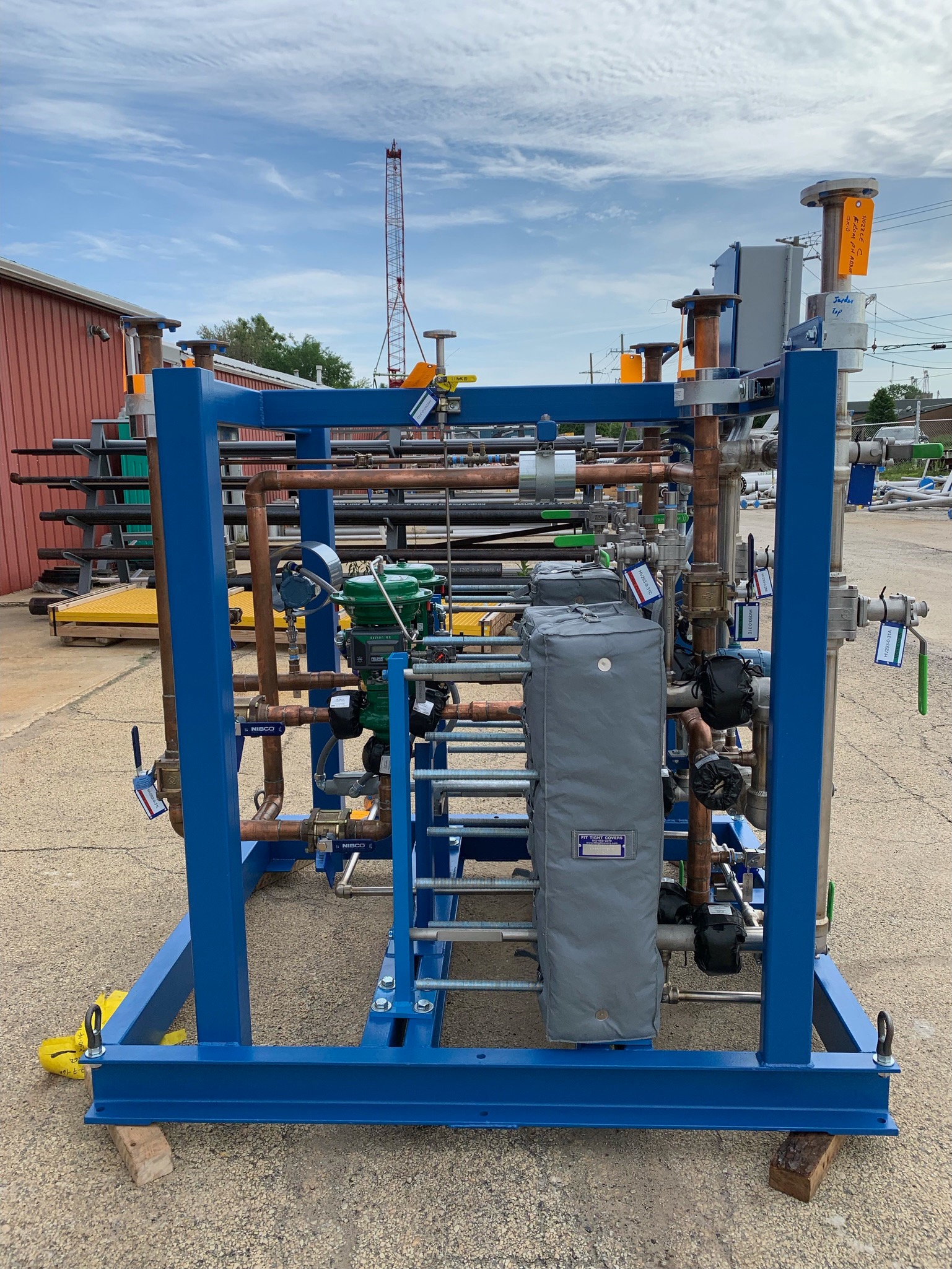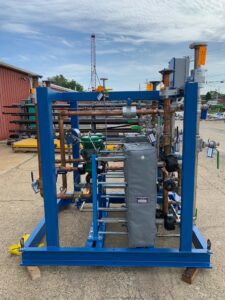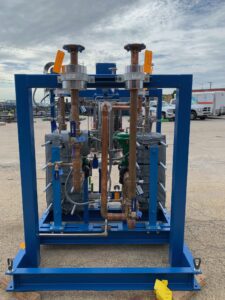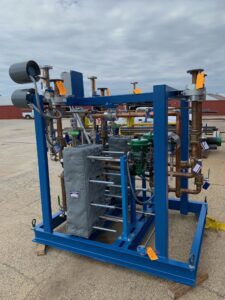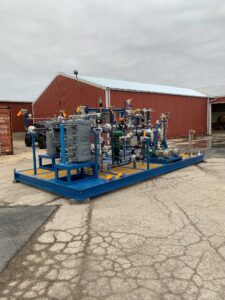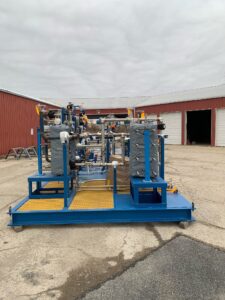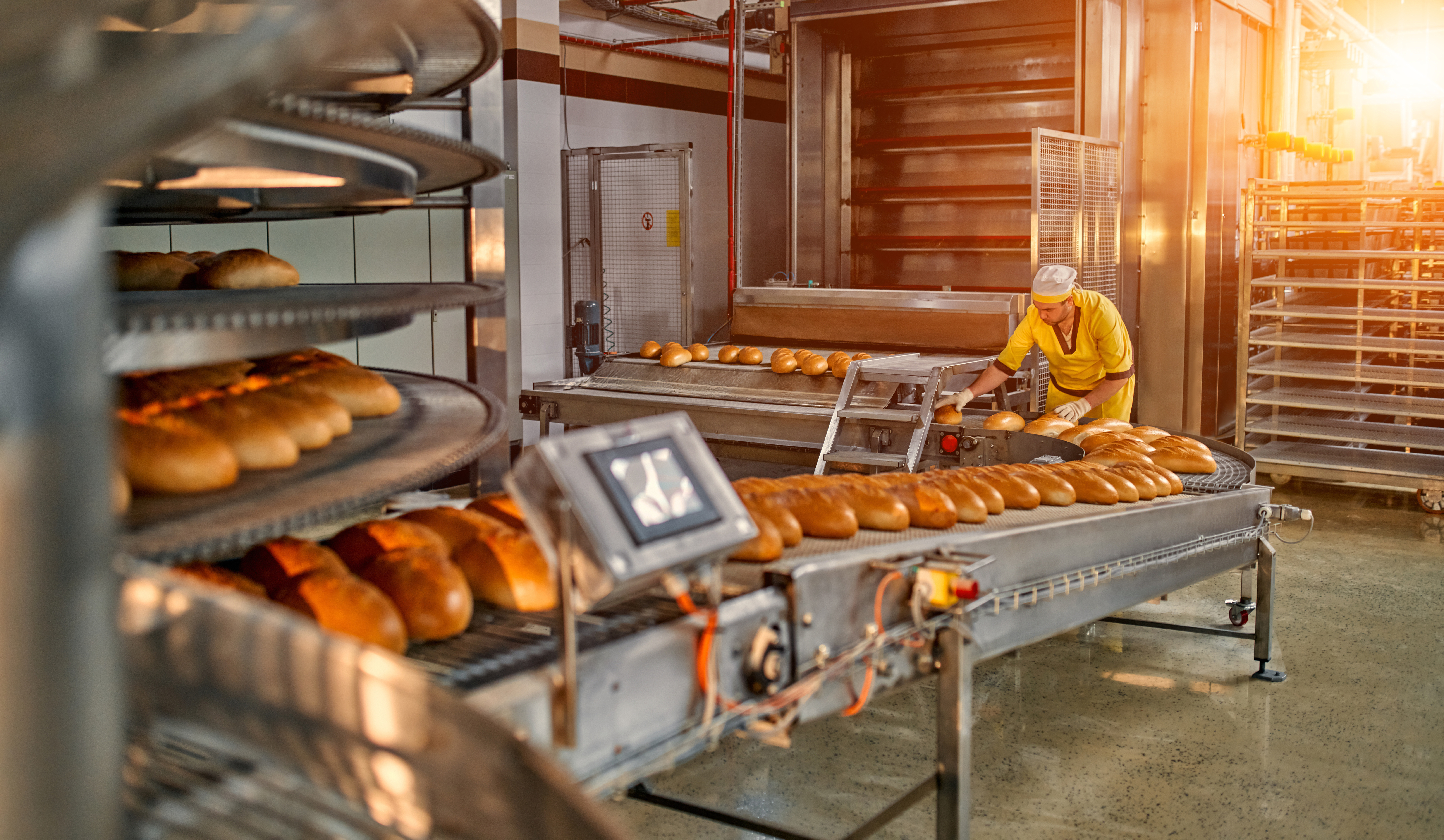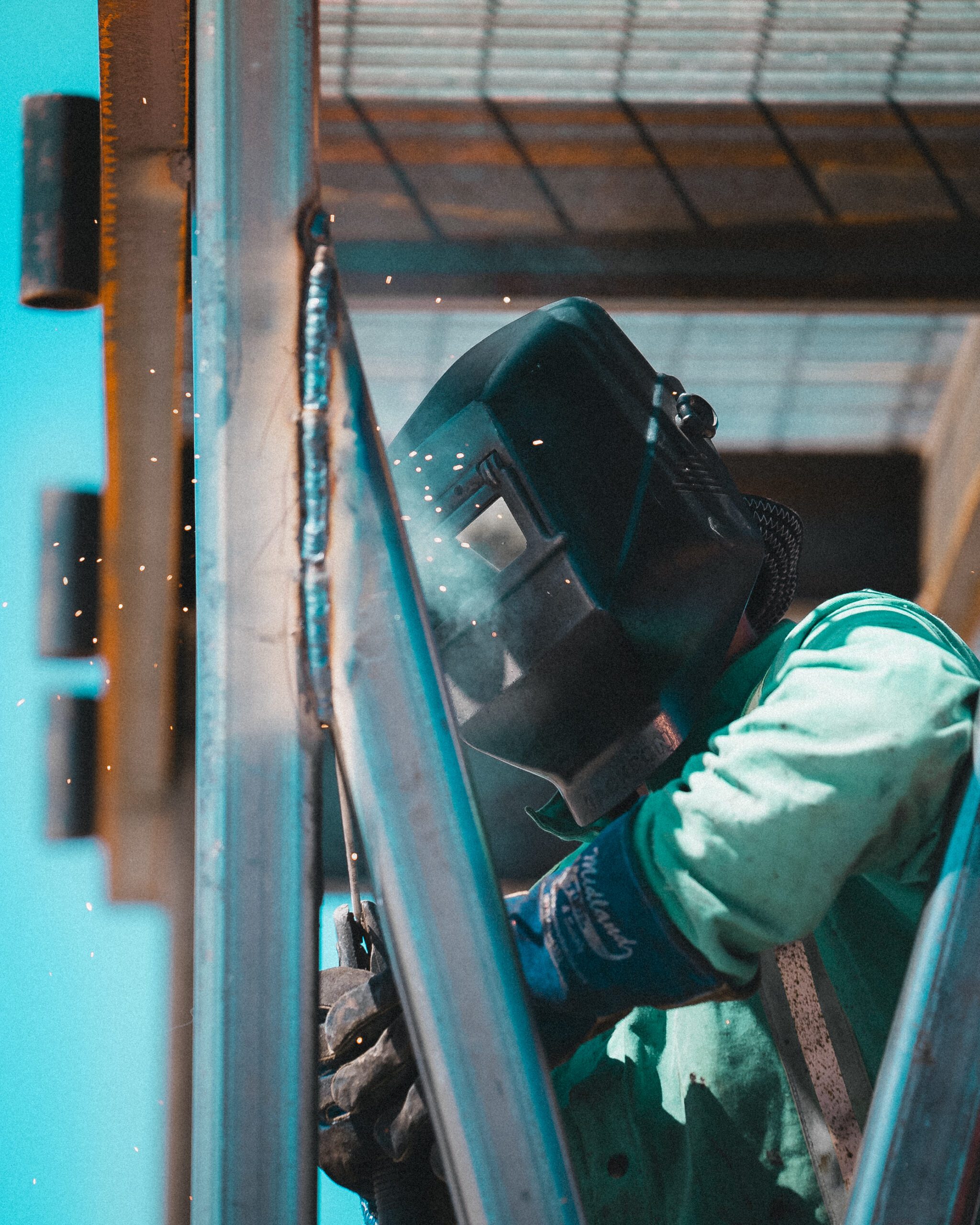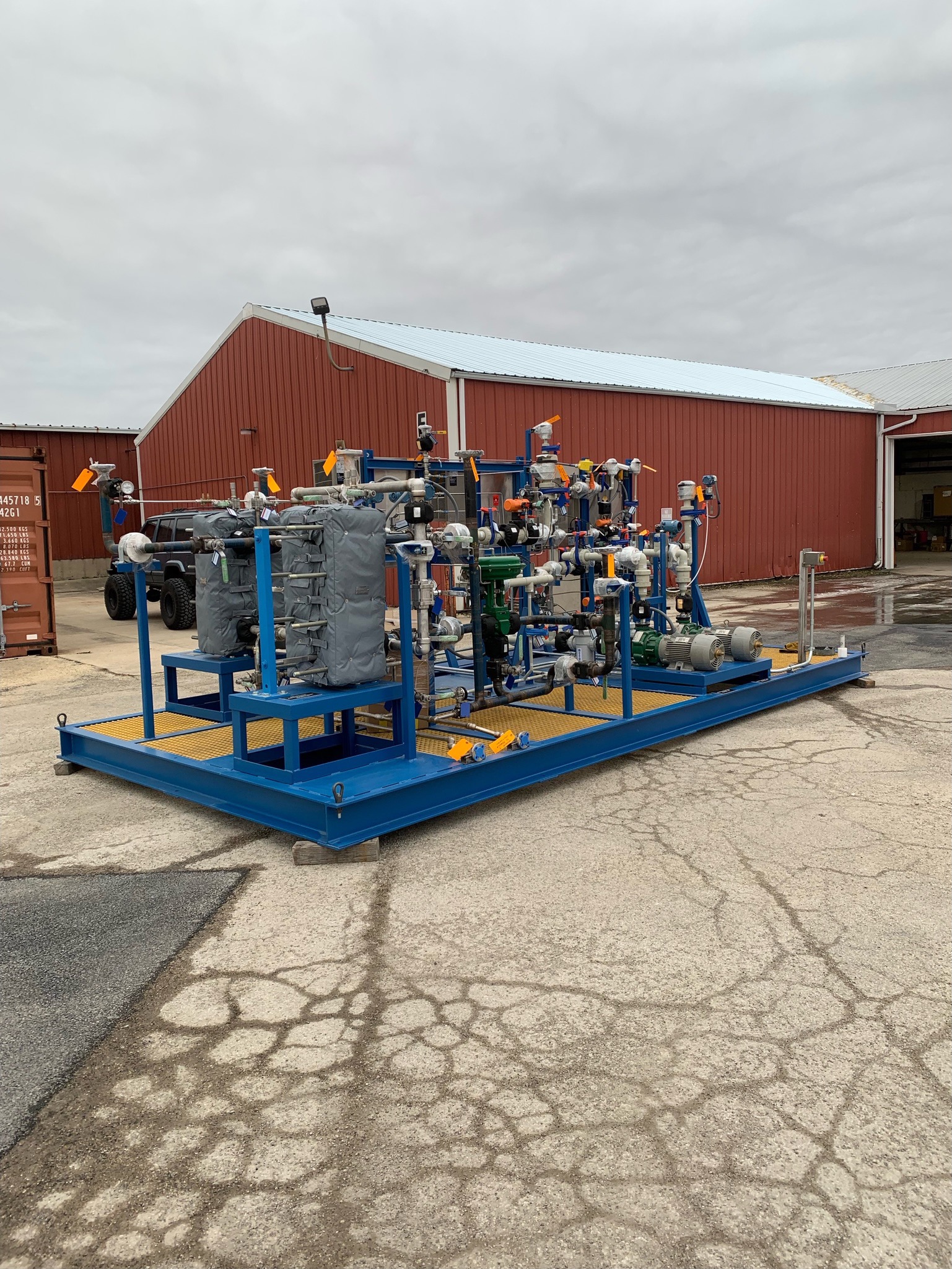The Value of Heat Exchangers in Industrial Manufacturing
As mechanical contractors with extensive experience in heat exchanger installation and skid fabrication, we at DePue Mechanical understand the vital role that heat exchangers play in the industrial manufacturing industry.
Heat exchangers are used in countless industrial processes to transfer thermal energy between fluids, gases, and solids, providing an efficient and cost-effective solution to heating and cooling needs. They come in various types, including plate heat exchangers, shell and tube heat exchangers, and finned tube heat exchangers (which we’ll get into later).
Our experience with heat exchangers is broad, including using plate exchanges to balance the temperature on the ammonia nitrate in various manufacturing processes. Proper temperature control is crucial for achieving optimal results during manufacturing processes.
The benefits of heat exchangers
Heat exchangers offer a range of benefits for industrial manufacturers, including:
- Efficient Energy Usage: When used in industrial processes, heat exchangers reduce the amount of energy required to heat or cool a fluid or gas, which helps lower energy costs, as well as reducing greenhouse gas emissions.
- Increased Product Quality: Heat exchangers help maintain a constant temperature and remove excess heat, which helps prevent thermal damage, reduce inefficiencies, and increase product yield.
- Extended Equipment Lifespan: By regulating temperatures and preventing unnecessary exposure to heat, heat exchangers can help prolong the lifespan of equipment involved in industrial processes.
- Improved Safety Standards: Heat exchangers help generate a safe and controlled working environment, reducing the risk of overheating, system failure, and other hazards associated with outdated cooling and heating systems.
How to know which heat exchanger is best for you?
So you’ve identified that you need to install or replace a heat exchanger for your system. But how do you know which one is best for you?
To understand which is best for you, let’s first dive into the different types of heat exchangers.
Heat exchangers are used in countless industrial processes to transfer thermal energy between fluids, gases, and solids, providing an efficient and cost-effective solution to heating and cooling needs. They come in various types, each with its own advantages and applications:
- Plate Heat Exchangers: Plate heat exchangers consist of multiple thin, corrugated plates stacked together with alternating flow channels, allowing for efficient heat transfer. They are ideal for applications with high temperature and pressure differences, such as HVAC systems, oil cooling, and heat recovery.
- Shell and Tube Heat Exchangers: Shell and tube heat exchangers are the most common type, featuring a bundle of tubes enclosed in a shell. They can handle high-pressure applications and are used in industries such as power generation, chemical processing, and oil refining.
- Finned Tube Heat Exchangers: Finned tube heat exchangers are used when compact size and increased heat transfer surface area are required. They are commonly used in air conditioning, refrigeration systems, and process cooling applications.
When determining the best heat exchanger for a specific industrial application, several factors need to be considered:
- Heat Transfer Requirements: Consider the desired temperature range, heat transfer rate, and the temperature difference between the hot and cold fluids. This will help determine the appropriate heat exchanger type and size.
- Fluid Compatibility: Different fluids require heat exchangers made from specific materials to prevent corrosion or contamination. Ensure compatibility between the fluids and the heat exchanger’s construction material to maintain process efficiency and product quality.
- Space Constraints: Consider the available space for installation. Some heat exchangers, like plate heat exchangers, offer a compact design, making them suitable for installations with limited space.
- Efficiency and Maintenance: Evaluate the efficiency and maintenance requirements of the heat exchanger type being considered. Factors such as fouling tendencies, accessibility for cleaning, and pressure drop influence long-term performance and operational costs.
At DePue Mechanical, our experienced team can help industrial clients evaluate their process requirements and select the most suitable heat exchanger solution. With a deep understanding of the advantages and applications of different heat exchanger types, we can provide expert guidance to ensure optimal system performance.
In summary, heat exchangers are a valuable asset to the industrial manufacturing industry, offering efficient energy usage, increased product quality, extended equipment lifespan, and improved safety standards. By considering factors such as heat transfer requirements, fluid compatibility, space constraints, and maintenance needs, industrial manufacturers can select the right heat exchanger type for their specific processes. As a trusted provider of heat exchanger services and solutions, DePue Mechanical is committed to helping clients maximize the benefits of these systems and ensure efficient and reliable operation in all their industrial applications.
What’s Next?
Contact us today to discuss your heat exchanger needs and find the best solution for your industrial manufacturing operations. Our team of skilled professionals is ready to provide top-notch installation, maintenance, and support services, ensuring optimal performance and efficiency in your heat exchanger systems.
Give us a call @ 815-255-2500, or connect with us here.
